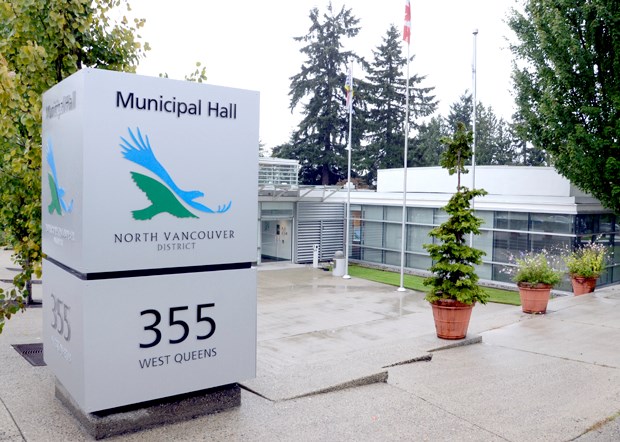The District of North Vancouver’s two-week moratorium on development came to an end Monday evening in a contentious and peculiar council meeting.
Responding to complaints about nightmarish traffic and fears around highrises reshaping the district’s skyline, Coun. Lisa Muri called for a halt on new development applications until May 31.
“This is not about stopping the OCP, it’s not about killing development,” Muri said. “Right now, we have an unprecedented amount of development happening.”
With approximately 788 units set to come before council for approval over the next four months, Muri said the development delay was needed to map out construction projects and draw up a phasing strategy.
Muri successfully requested a two-week halt on construction at a Feb. 9 meeting, but council pulled the plug on the moratorium Monday with new Coun. Mathew Bond casting the deciding nay in a 4-3 vote.
“Pausing multi-family development will not result in solving our traffic issues. In fact, the opposite is more likely true,” Bond said.
It will take ingenuity to deal with the district’s traffic problems, according to Bond, an engineer who works in transportation.
“It’s not rocket science,” he said. “It’s actually much more complicated.”
The district’s traffic woes might be exacerbated by retired residents running errands or by multitudes of out-of-municipality contractors attending to the 684 single-family homes undergoing construction, renovations and demolitions.
“The reality is we don’t have the luxury to stop and think, we must act on our feet,” he said.
Bond attempted to substitute Muri’s motion with his own. After being told that wasn’t council protocol, Bond’s motion was submitted and seconded for discussion by Coun. Roger Bassam.
Citing fears of getting “bogged down,” Mayor Richard Walton had council vote on the substitute motion without discussion, where it was defeated 6-1.
A visibly irritated Muri told Bond she’d never seen anything like that in her two decades on council.
While the councillors agreed district roads are increasingly clogged, they were unable to find consensus on the cause or on a solution.
Traffic problems will continue to be alleviated by working with developers, according to Coun. Roger Bassam.
To make his case, Bassam cited the Keith Road extension as well as the new bus exchange in Lynn Valley that comes part and parcel with Bosa’s development. Building towers in Seylynn also led to four new lanes for the district, allowing the municipality to make inroads on the east-west traffic problem.
“That’s how we’re going to solve our problems going forward,” Bassam said. “We’re going to do it in parallel to the development that happens in the community over the next 15 years.”
Bassam also rejected the notion the District of North Vancouver could work with the City of North Vancouver to establish development guidelines. Bassam recalled the city’s recent rebuff of the district’s request for a joint review of transportation in the two North Vancouvers.
“It wasn’t a mild rebuff, it was a 6-1 vote of council saying, ‘We’re not coming. We’re not going to talk to you.’ If we can’t even talk about transportation, what are the chances of them getting into bed with us and saying, ‘OK, let’s phase our development projects together?’”
The same holds true with First Nation communities, according to Bassam.
“The First Nations are simply not going to say, ‘Yes, we agree that you should have some input in the phasing and development of our sovereign territory.’ It’s never going to happen.”
Muri’s motion was supported by Couns. Doug MacKay-Dunn and Jim Hanson.
“I believe that my duty to the voters of North Vancouver District requires me to put a pause, a three-and-a-half month pause, on further development until the causes of our worsening traffic woes are sorted out,” Hanson said.
However, Mayor Richard Walton suggested district residents may be the authors of their traffic problems, citing the congestion around schools at 9 a.m. and 3 p.m.
“We have a significant problem. It’s us, driving our own family members around at peak times,” he said.
While Muri’s call for a halt on development failed, she found unanimous support for a review of the district’s official community plan.
MacKay-Dunn and Bond co-wrote a friendly amendment, calling for a two-hour public workshop by May 31 at the latest.
Negotiating Monday’s council meeting was a challenge, MacKay-Dunn noted.
“I feel like I’m dancing with an elephant, and I’m trying to lead,” he said.



